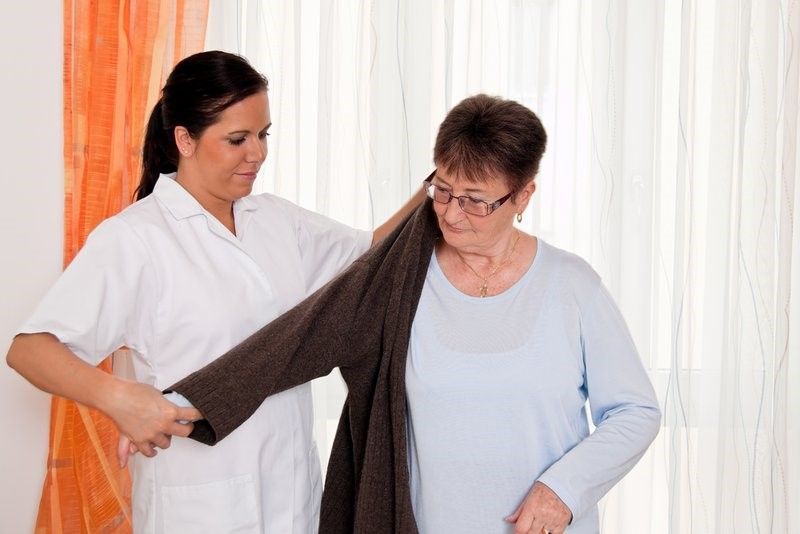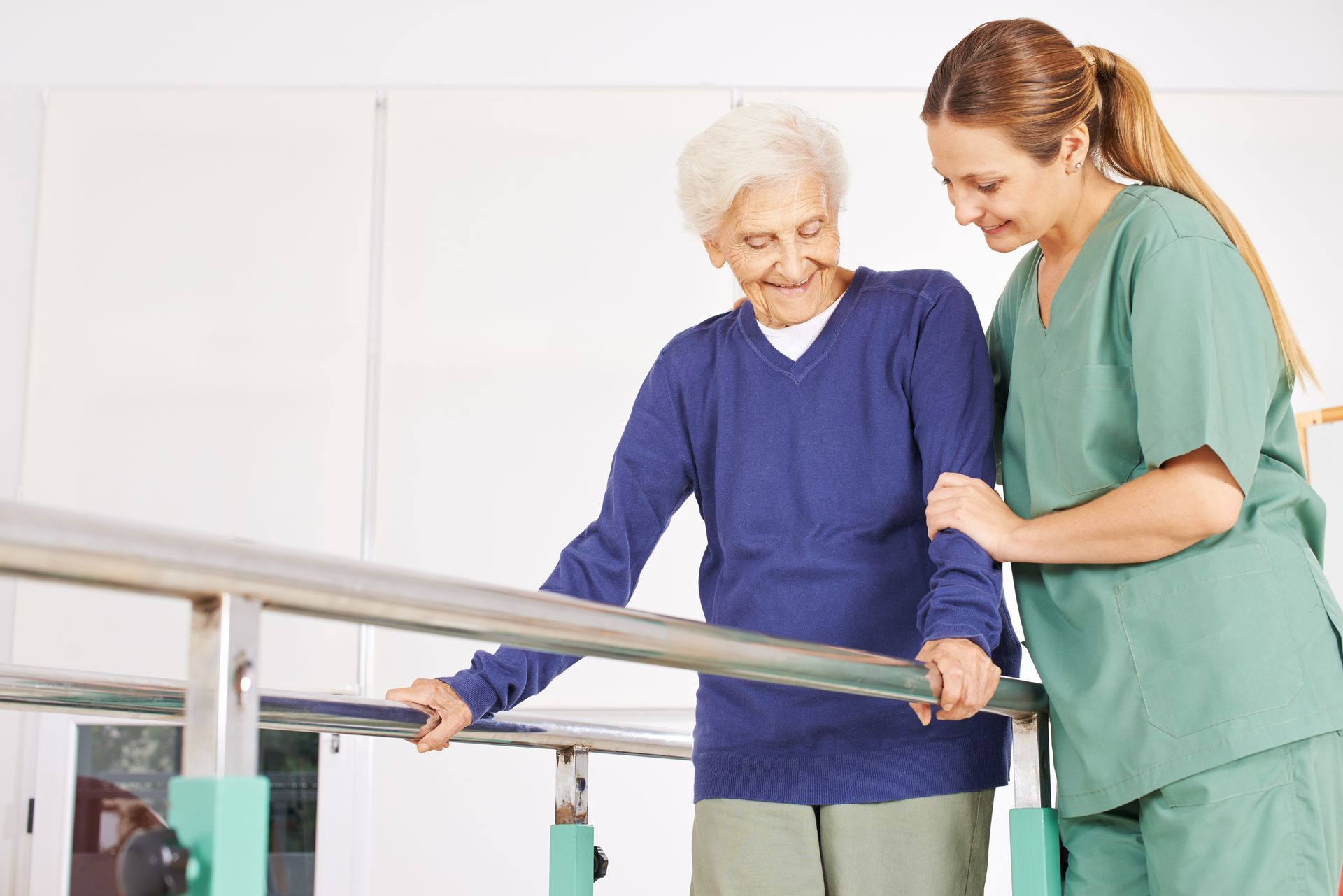A family owned business providing a full range of home health and school nursing services
PCA, CNA, Home Health Aid: Which Career Path is Right for You?
In today's healthcare landscape, the roles of Personal Care Assistants (PCAs), Certified Nursing Assistants (CNAs), and Home Health Aides (HHAs) are vital for providing quality care. All of these professions allow you to pursue healthcare jobs with purpose, where your efforts directly enhance patients' well-being. However, the responsibilities and qualifications required for each role differ significantly. This article will help you understand the key distinctions between PCAs, CNAs, and HHAs, guiding you toward a career that aligns with your passion for helping others. Understanding the Roles: PCA vs. HHA,
When choosing between PCA, CNA, and HHA roles, it's important to understand the scope of their responsibilities.
Personal Care Assistants (PCAs) are typically focused on assisting clients with everyday activities, providing companionship, and fostering a sense of independence. In contrast,
Home Health Aides (HHAs) and Certified Nursing Assistants (CNAs) offer medical support, ensuring that health conditions are monitored and basic healthcare needs are met. All professions are essential in patient care, but the ways they approach caregiving can differ.

Duties of PCAs
PCAs play a crucial role in the lives of their clients, offering support for daily activities such as bathing, dressing, and meal preparation. The job goes beyond just completing tasks; PCAs provide emotional companionship that helps combat loneliness and promotes mental well-being. Their approach is deeply personal, adapting to the specific needs of each individual, allowing for more tailored care. A PCA role might be the perfect fit for those passionate about forming meaningful relationships while helping clients maintain their independence.
Duties of CNAs and HHAs
On the other hand, CNAs and HHAs bring a more clinical aspect to caregiving. Their responsibilities include medication reminders, monitoring vital signs, and collaborating with healthcare professionals to create comprehensive care plans. By addressing both health and emotional needs, CNAs and HHAs play a key role in ensuring patients remain stable and well cared for at home. For those who want to integrate medical knowledge into patient care while still offering emotional support, the CNA and HHA roles offer fulfilling paths.
Work Environments for PCAs, CNAs, and HHAs
While PCAs, CNAs, and HHAs may work in similar environments—such as private homes, schools, assisted living facilities, or community centers—their approaches to caregiving are shaped by their settings. PCAs often work in environments where the emphasis is on emotional support, helping clients feel safe and comfortable in their homes. This creates a warm, nurturing atmosphere that is critical for long-term care. CNAs and HHAs, however, may work in more clinical environments where their medical skills are crucial. In these settings, the focus is on closely monitoring health conditions, ensuring that medical needs are met while maintaining a personal connection with the patient.
Qualifications and Certifications for PCAs and HHAs
PCA and HHA Requirements
Becoming a PCA is often more accessible than other healthcare jobs with purpose, as it typically does not require a formal degree or certification. However, communicating effectively, showing empathy, and understanding basic care techniques is critical. Some PCAs may choose to undergo additional training to improve their skills and stand out in the workforce, but this is not always mandatory.
CNA Credentials
To become a CNA, individuals usually need to complete specific training and obtain state certification. This ensures that they are well-prepared to handle more complex medical tasks. Ongoing education may also be required to maintain certification, as HHAs need to stay current on healthcare regulations and practices. By acquiring these credentials, HHAs are equipped to provide care that meets emotional needs and addresses medical concerns.
Impact on Patient Care: Healthcare Jobs with Purpose
Regardless of the role you choose, PCAs, CNAs, and HHAs have the ability to make a significant impact on patients' lives. Here’s how each role contributes to improving the quality of life for those in their care.
Enhancing Daily Life with PCAs
PCAs excel at making everyday life more manageable and enjoyable for their clients. By providing assistance with routine activities, they foster a sense of independence and companionship that helps reduce feelings of loneliness and isolation. Imagine a PCA preparing meals or engaging a client in conversation—these moments address physical needs and nurture emotional well-being.
Providing Medical Care with HHAs
CNAs and HHAs play an indispensable role in monitoring health conditions. By keeping track of vital signs, managing medication schedules, and alerting healthcare professionals to any changes, they help ensure patients receive timely medical attention. Their proactive approach allows for early intervention, which can significantly improve health outcomes and overall quality of life.

Exploring Healthcare Jobs with Purpose at Criticare
PCA, CNA, and HHA roles offer more than just a job—they offer a career filled with personal fulfillment. Caregivers often find deep satisfaction in helping their clients achieve a better quality of life, whether it’s through medical assistance or the simple act of companionship. At Criticare, these roles are seen as opportunities to make a real difference.
Personal Fulfillment and Work-Life Balance
One of the most rewarding aspects of working as a PCA, CNA, or HHA is the emotional connection formed with clients. Whether you’re helping a senior maintain their independence or ensuring a patient’s medical needs are met, the bonds you create can be as fulfilling as the tasks themselves. Additionally, many caregivers appreciate the flexibility of the job, which often allows for a balanced work-life schedule.
Choosing Your Path—Healthcare Jobs with Purpose
Choosing between a career as a PCA or an HHA comes down to your personal preferences and skills. If you’re driven by forming personal connections and helping individuals with their daily lives, the role of a PCA may be right for you. However, if you’re passionate about healthcare and want to contribute to medical care while still providing emotional support, a CNA or HHA role may be the perfect fit.
At Criticare, we believe in investing in our caregivers by providing ongoing training and a supportive work environment for healthcare jobs with purpose. Whether you’re interested in working as a PCA or an HHA, we offer meaningful career opportunities that allow you to contribute to the lives of others in a purposeful way. Explore your opportunities today and join a team that’s committed to providing compassionate, high-quality care.

CONTACT INFORMATION
Chadds Ford PA 19317
info@criticareplus.com
Mon-Fri 9:00 AM - 5:00 PM, Sat-Sun - Closed
24 Hours on call services
OUR LOCATION
BROWSE
CONTACT INFORMATION
Chadds Ford PA 19317
info@criticareplus.com
Mon-Fri 9:00 AM - 5:00 PM, Sat-Sun - Closed
24 Hours on call services
OUR LOCATION










